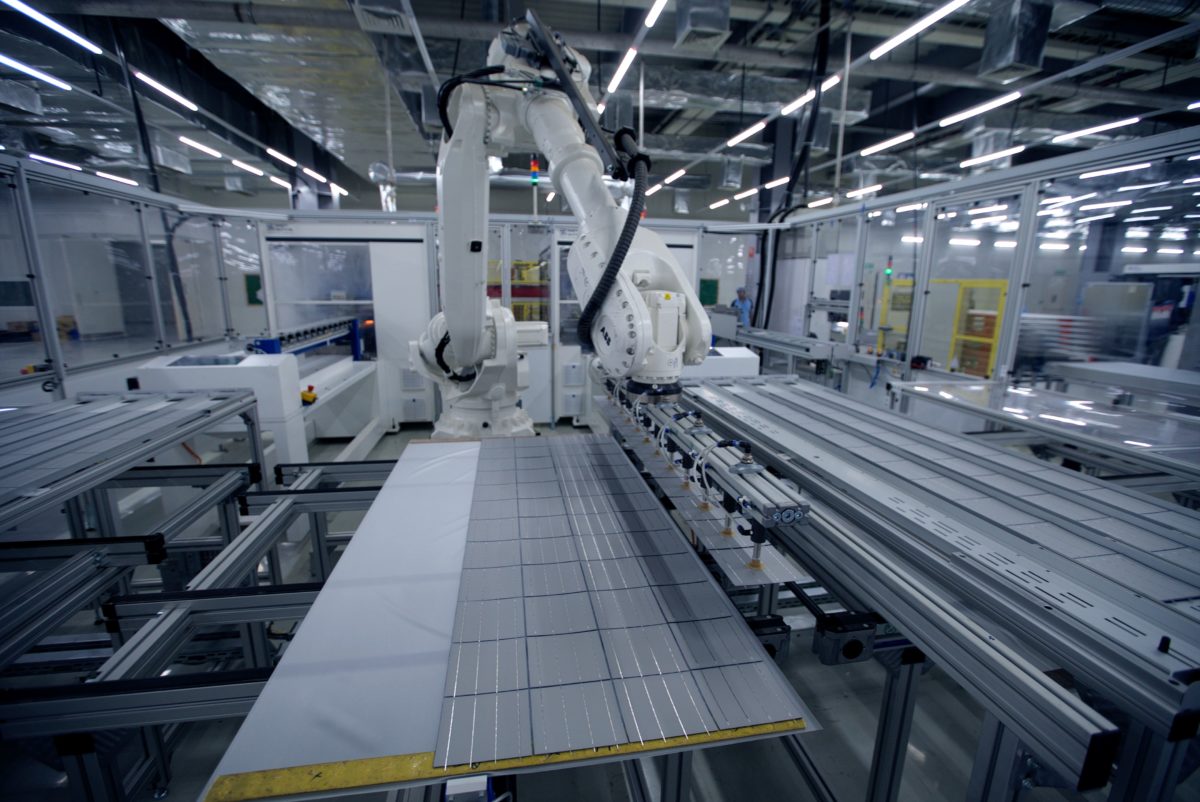The government’s INR4500-crore production-linked incentives scheme, to support gigawatt-scale manufacturing of high-efficiency solar modules, has concluded, with at least four players emerging as beneficiaries.
Jindal India Solar Energy, owned by Jindal Polyfilms, made the most competitive bid by seeking the lowest production-linked incentive (PLI) support for 4 GW of fully integrated module manufacturing capacity. Data from trade body the National Solar Federation of India, seen by pv magazine, indicated Jindal has applied for INR1390 crore of support.
Transformer manufacturer and installer Shirdi Sai Electricals (with a bid for INR1875 crore of incentives), the Reliance New Energy Solar business of conglomerate Reliance Industries (INR1917 crore), and the infrastructure unit of fellow multinational Adani (INR3600 crore) were the other successful bidders. The auction took into account the level of assistance sought, planned solar manufacturing capacity and whether manufacturers planned to produce polysilicon and solar ingots, wafers and cells, as well as assembling modules.
All four successful bidders sought incentives for the maximum eligible annual manufacturing capacity of 4 GW and pledged the full extent of integrated manufacturing, from poly to panels.
Under the manufacturing-linked tender rules, however, bidders will only receive support for half of the production capacity they are planning, capped at 2 GW. That would imply the four successful bidders will each receive half of the financial support they have applied for, for a total public spend of INR4391 crore.
This content is protected by copyright and may not be reused. If you want to cooperate with us and would like to reuse some of our content, please contact: editors@pv-magazine.com.









1 comment
By submitting this form you agree to pv magazine using your data for the purposes of publishing your comment.
Your personal data will only be disclosed or otherwise transmitted to third parties for the purposes of spam filtering or if this is necessary for technical maintenance of the website. Any other transfer to third parties will not take place unless this is justified on the basis of applicable data protection regulations or if pv magazine is legally obliged to do so.
You may revoke this consent at any time with effect for the future, in which case your personal data will be deleted immediately. Otherwise, your data will be deleted if pv magazine has processed your request or the purpose of data storage is fulfilled.
Further information on data privacy can be found in our Data Protection Policy.